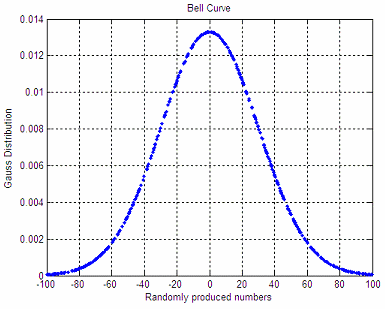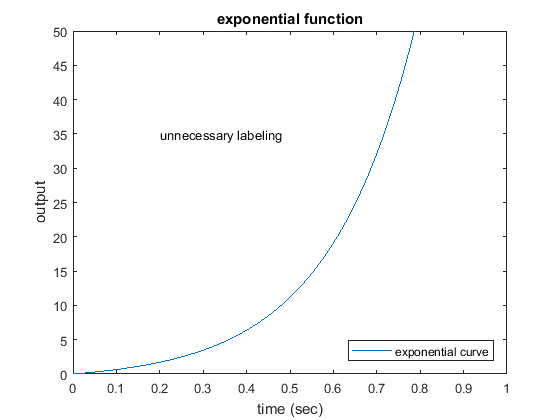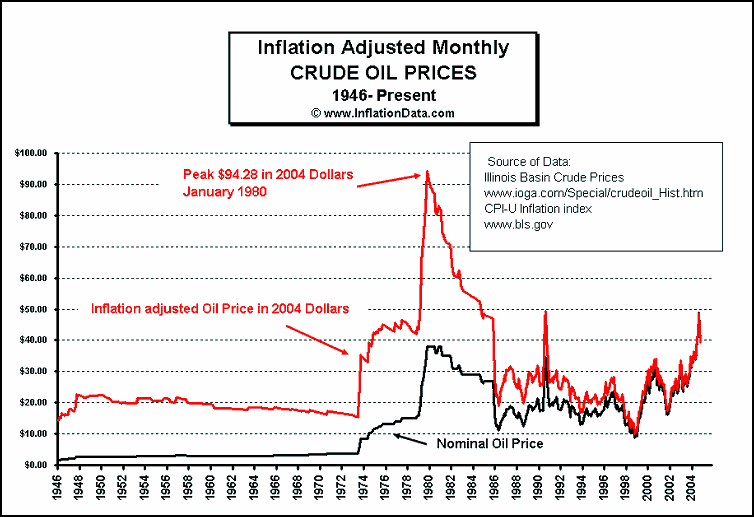https://townhall.com/columnists/thom...-rich-n2320748One of the painful realities of our times is how long a political lie can survive, even after having been disproved years ago, or even generations ago.
A classic example is the phrase "tax cuts for the rich," which is loudly proclaimed by opponents, whenever there is a proposal to reduce tax rates. The current proposal to reduce federal tax rates has revived this phrase, which was disproved by facts, as far back as the 1920s -- and by now should be called "tax lies for the gullible."
How is the claim of "tax cuts for the rich" false? Let me count the ways. More important, you can easily check out the facts for yourself with a simple visit to your local public library or, for those more computer-minded, on the Internet.
One of the key arguments of those who oppose what they call "tax cuts for the rich" is that the Reagan administration tax cuts led to huge federal government deficits, contrary to "supply side economics" which said that lower tax rates would lead to higher tax revenues.
This reduces the whole issue to a question about facts -- and the hard facts are available in many places, including a local public library or on the Internet.
The hardest of these hard facts is that the revenues collected from federal income taxes during every year of the Reagan administration were higher than the revenues collected from federal income taxes during any year of any previous administration.
How can that be? Because tax RATES and tax REVENUES are two different things. Tax rates and tax revenues can move in either the same direction or in opposite directions, depending on how the economy responds.
But why should you take my word for it that federal income tax revenues were higher than before during the Reagan administration? Check it out.
Official statistics are available in many places. The easiest way to find those statistics is to go look at a copy of the annual "Economic Report of the President." It doesn't have to be the latest Report under President Trump. It can be a Report from any administration, from the Obama administration all the way back to the administration of the elder George Bush.
Each annual "Economic Report of the President" has the history of federal revenues and expenditures, going back for decades. And that is just one of the places where you can get this data. The truth is readily available, if you want it. But, if you are satisfied with political rhetoric, so be it.
Before we turn to the question of "the rich," let's first understand the implications of higher income tax revenues after income tax rates were cut during the Reagan administration.
That should have put an end to the talk about how lower tax rates reduce government revenues and therefore tax cuts need to be "paid for" or else there will be rising deficits. There were in fact rising deficits in the 1980s, but that was due to spending that outran even the rising tax revenues.
Congress does the spending, and there is no amount of money that Congress cannot outspend.
As for "the rich," higher-income taxpayers paid more -- repeat, MORE tax revenues into the federal treasury under the lower tax rates than they had under the previous higher tax rates.
That happened not only during the Reagan administration, but also during the Coolidge administration and the Kennedy administration before Reagan, and under the G.W. Bush administration after Reagan. All these administrations cut tax rates and received higher tax revenues than before.
More than that, "the rich" not only paid higher total tax revenues after the so-called "tax cuts for the rich," they also paid a higher percentage of all tax revenues afterwards. Data on this can be found in a number of places, including documented sources listed in my monograph titled "'Trickle Down' Theory and 'Tax Cuts for the Rich.'"
As a source more congenial to some, a front-page story in the New York Times on July 9, 2006 -- during the Bush 43 administration -- reported, "An unexpectedly steep rise in tax revenues from corporations and the wealthy is driving down the projected budget deficit this year." Expectations, of course, are in the eye of the beholder.
Thomas Sowell has made his living as an economist by his delight in dispelling conventional wisdom. He is a god-like figure to Libertarians, even though he would never describe himself in such terms.
I have tried, and miserably failed, to make these points to others on this board. Perhaps a more intelligent person than me, with economic credentials for days, can make my point better than I ever could.
What do you think of his column? Do you think the facts fit the narrative of "tax cuts for the rich drive deficits"?
Thread: 'Tax Cuts for the Rich'?
-
2017-05-02, 01:52 AM #1
'Tax Cuts for the Rich'?
-
2017-05-02, 02:17 AM #2
The laffer curve is a curve like:

not like:

We're decidedly on the downward slope of that.
Conflating tax rates to tax revenues, as if they are the only factor, is idiotic. Correct for inflation, correct for other laws that were passed (especially in the bush years).
Saying the rich have paid a greater % of the total tax base just means that more and more people are sliding into poverty and into lower and lower tax brackets, which is straight line duh.
-
2017-05-02, 02:26 AM #3
Err, no. You are missing your own point. The rich will always pay more in taxes, regardless of the rate. If they pay less of the overall burden, they are evil and not "paying their fair share". If they pay more of the overall burden, they are "hoarding all the money". There is no way for them to "win" the math. If you cut the tax rates of everyone but the rich, the rich will also profit from that, because they will always profit from growing the economy, just like we all do. There is no possible way to grow the economy, and have it benefit the people who don't have investments more than those who do. That math is inescapable. Zero will always be a lower figure than a positive number.
-
2017-05-02, 02:26 AM #4
They keep saying Trumps new plan is just breaks for the rich? Not sure how that's the case. Seems like it removes a lot of the deductions Trump usually used like the alternative minimum tax. 35% would be higher than he paid according Madcows special.
-
2017-05-02, 02:31 AM #5
I'm not missing jack. From the OP:
If their comparative rate goes down, and their overall % goes up... the math, like you said, is inescapable. According to the economic data, more people are in poverty. Fewer people in the "middle class." Larger wealth gap.they also paid a higher percentage of all tax revenues
- - - Updated - - -
I don't think you know what the alternative minimum is. It makes people pay more money. That's why it says "minimum." You're required to pay the higher of the two calculated amounts, it's not a deduction. Get your shit figured and come back.
-
2017-05-02, 02:32 AM #6
This article is nothing but ideological spin, and has the cheek to accuse pretty much everyone of being gullible for listening to politics.
Seems to be based on nothing but the old Reaganomics/Laffer Curve claptrap from about a thousand years ago.
-
2017-05-02, 02:36 AM #7
Reagan tax cuts had nothing to do with increased tax revenue. Hint: A little thing called the 80s tech boom was the cause of it before the bubble burst.
-
2017-05-02, 02:41 AM #8High Overlord


- Join Date
- Mar 2017
- Posts
- 193
Article also uses Reagan era as a reference, but fails to mention the massive reduction in fed rates between the late 70s and early 80s. Reducing hurdle rates for business initiatives by 10% is going to impact business creation rates significantly more than tax rate changes.
"Supply side" is pure fiction. There is an unlimited number of individuals that will happily exploit an un-tapped market if one of the incumbents doesn't do it (RC Cola wishes Coke would let it steal market share). The assertion that the incumbents won't keep growing is also fiction: Coca Cola isn't going to stop marketing - that would give Pepsi an advantage.
-
2017-05-02, 03:07 AM #9
How does your theory explain the administrations of Bush 43, Kennedy, and Coolidge then?
- - - Updated - - -
I have yet to see any statistical support for the notion that a growing economy creates more poverty than a shrinking one. The US has the richest poor people in the world. By current living standards, these people would have been middle class in the 1950's.
-
2017-05-02, 03:09 AM #10
People really should stop bothering with the laffer curve theory. There are little IRL examples of tax cuts increasing revenue, and tax increases reducing revenue. So it's a reasoning thing that makes sense when you think of it, but there is little supporting evidence.
-
2017-05-02, 03:11 AM #11
The plan also doubles the standard deduction, meaning those who have no deductions (the bottom 70%), will see a dramatically larger tax return. That itself will lead to a mini stimulus.
- - - Updated - - -
Did you not read the article? It cites four presidencies where revenues went up after lowering rates.
- - - Updated - - -
That tech boom that pre-existed the internet by about a decade? What are you talking about? The Reagan tax cuts were in 1982. If anything, that was the tail end of the prior tech boom (early computers/transistors/radio shack era tech), not the start of the boom under Clinton.
-
2017-05-02, 03:12 AM #12
Its a load of misleading rubbish. You cannot look at the effect of tax cuts without looking at the surrounding economic environment at the time of those cuts. For example at the same time as the Reagan tax cuts this was what was happening to the price of oil, the number one commodity underpinning all economic activity. Note too that the energy intensity of the economy was much higher in those days, it took far more oil input to produce a unit of GDP so you should double those prices for the real true "cost" in 2004 dollars.

Is it any wonder then that the economy boomed and tax returns rose after the OPEC stranglehold was removed? Did the fall in the price of oil cause the economic boom or was it the Reagan tax cuts? Either way to ascribed it with such 100% certainty as the Sowell article does is just laughable. Anyone who reads it should immediately put it where it belongs - in the trash - and recognize that the author is a joke and not someone to ever take seriously.
-
2017-05-02, 03:16 AM #13
I think there is a difference between two firms that spend most of their money in marketing than in making their stuff better. Or a better point for commies and pinkos, in cases of monopoly most CEOs raise their own wages to exhorbitant levels or underpay their workers.
-
2017-05-02, 03:21 AM #14
What then, of the Kennedy, Coolidge, and Bush 43 administrations? They also cut taxes from relative highs to relative lows, and saw subsequent increases in revenues to the government. This is historically true in other nations as well.
Is it not both Economics and Sociology science denial, to presume that cutting taxes happens in a bubble, with no impact on the economy? Is it not mathematics science denial to argue that only of the factors in an equation, can change the product? Do you really not see that growing the base GDP, impacts the revenue paid in taxes? Like, for real no?
Are you arguing that every time in history this concept has been proven true, it was just "luck"?
-
2017-05-02, 03:27 AM #15
Your brain must have shut down if that's what you think I was intimating. I'm saying that decreasing the relative tax rates between rich and poor does that. If you cut tax rates by 10% for the rich, and 1-2% for the poor, and the percentage contribution to net taxes of the rich goes up, guess what's happened. The wealth gap has increased. If the amount of physical capital remains the same (as it roughly does from one year to the immediately proceeding one) the rich have crowded out the poor from ownership of said capital.
I have yet to see any economic data supporting your contention that people in poverty would be the 1950s middle class. In fact, the opposite. Home ownership is down, debt rates are up, cost of living vs income is up. You're full of shit.
-
2017-05-02, 03:30 AM #16High Overlord


- Join Date
- Mar 2017
- Posts
- 193
If your assertion is that tax cuts spur growth, and that growth spurs tax revenue, then you would need to demonstrate that tax cuts spur growth. Unfortunately, this is not the case in the real world. I'm sure you'll go find a study that cherry picks a few years instead of looking at everything though!
-
2017-05-02, 03:31 AM #17
-
2017-05-02, 03:31 AM #18
-
2017-05-02, 03:34 AM #19High Overlord


- Join Date
- Mar 2017
- Posts
- 193
-
2017-05-02, 03:35 AM #20
If the top 1% is paying ~40% of the overall tax burden, there is virtually no number you could use to adjust tax rates, that would not result in more benefit to the 1%. This is basic math. If you multiply A by B, the product will always be larger when one person's B is dramatically larger than other person's B (given that A is a decimal figure below 1).
My 1950's argument is one of standard of living, as it plainly states. Many of the common comforts we assume as standard today, were luxuries then. That's true all across the spectrum of income.Last edited by Tijuana; 2017-05-02 at 03:39 AM.

 Recent Blue Posts
Recent Blue Posts
 Recent Forum Posts
Recent Forum Posts
 May be stop wasting resoures on experiments?
May be stop wasting resoures on experiments? More permitted video sources
More permitted video sources MMO-Champion
MMO-Champion



 Reply With Quote
Reply With Quote


